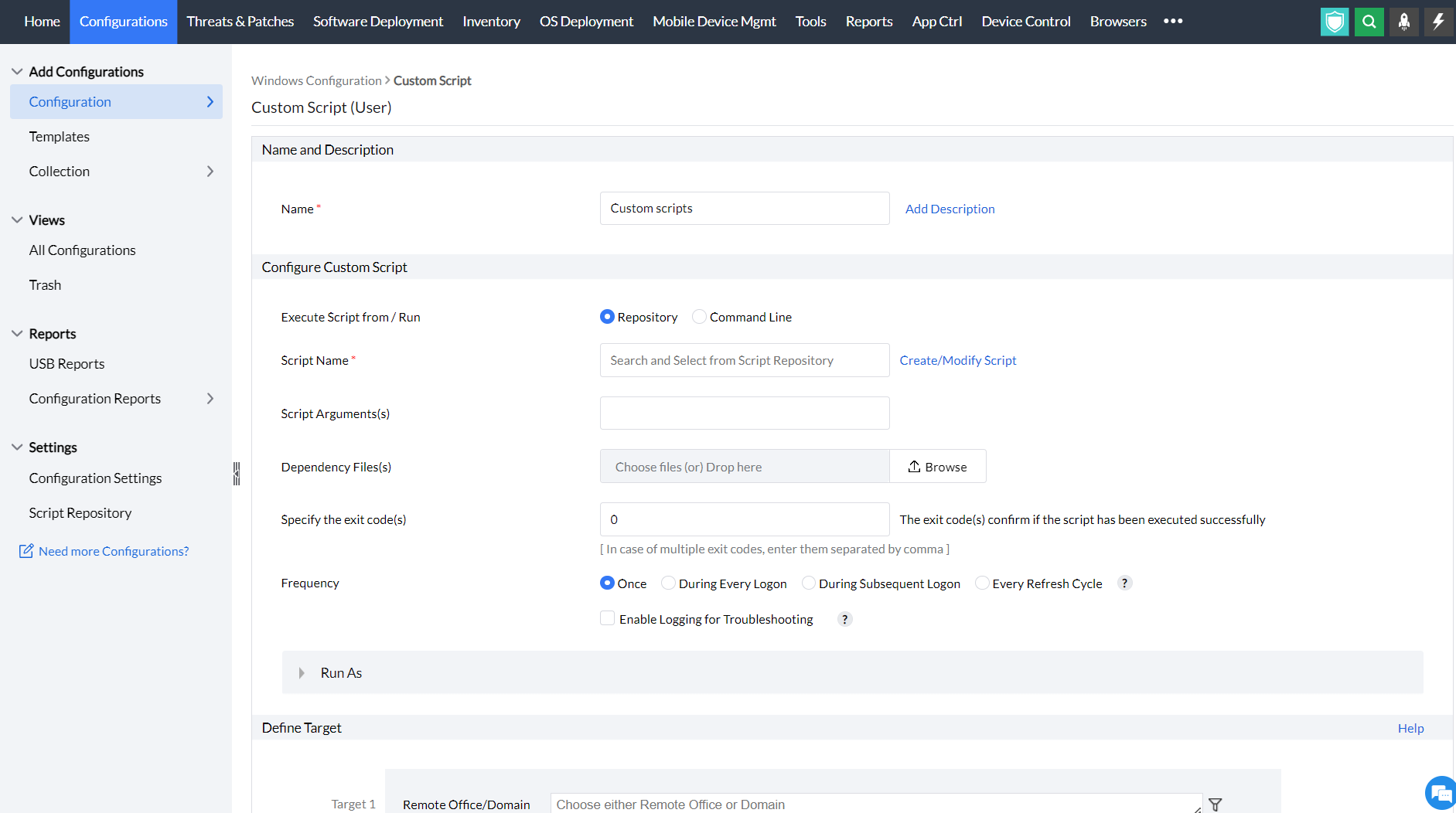

The software configuration in Endpoint Central called custom script enables users to carry out administrative chores and other on-demand tasks. When it comes to carrying out customizations particular to the organizations in question, custom scripts have shown to be of great use to administrators. You can execute up to 40 predefined configurations using the custom scripts offered by Endpoint Central, including print configuration, drive mapping, various security policies, and so on
Any of the widely used scripting languages, including VB Script, JScript, Perl, Python, and others, can be used to create the custom script. Batch files (.bat or.cmd) and any other language supported by Windows Script Host (WSH), including Python, VB Script, JScript, Perl, REXX, and Perl for Windows OS, and sh, bash, ksh, csh, and tcsh for Linux, are the formats that are supported. IT administrators will have the responsibility of rewriting any corrupted scripts that were obtained from the web due to the prevalence of any malware and bugs. As a solution, Endpoint Central offers a script repository with validated and uploaded scripts to get over this obstacle.To learn more about the several script templates in Endpoint Central's script repository, click here.
Based on customer interaction and support feedback, Endpoint Central has an extensive built in repository with over 300+ scripts. The configurations created with these script templates will be ready for deployment after passing the required arguments. You can view the list of script templates here : Endpoint Central web console > Configurations > Settings > Script Repository > Templates. Based on your requirement, you can select the template and click on it to add the script to your local script repository. The templates are updated periodically to enhance its capability. To utilize the custom script, it should first added to the script repository. By enabling the option to share the custom script with Endpoint Central, the script will be stored, processed, tested and subsequently shared to the Endpoint Central users via the script templates. Here is the complete list of the available script templates. You can deploy these scripts in form of configurations to users/computers.

You have successfully added a custom script for Windows/Linux machines